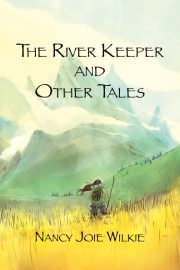2020 Nebula Conference Panels, a Sneak Peek!
 Looking forward to the 2020 Nebula Conference? We are, too! To whet your appetite, our programming team has prepared a sample of panels you can look forward to in May. Though these items are neither comprehensive nor final, they represent the well-rounded, professional experience we’re aiming for. If you’re inspired to contribute, please submit your ideas to our “Topic Suggestions” and “Call for Programming” Google forms. And if they inspire you to register, you’re in luck! Early Bird pricing has been extended to January 7, 2020. Click here to register, now!
Looking forward to the 2020 Nebula Conference? We are, too! To whet your appetite, our programming team has prepared a sample of panels you can look forward to in May. Though these items are neither comprehensive nor final, they represent the well-rounded, professional experience we’re aiming for. If you’re inspired to contribute, please submit your ideas to our “Topic Suggestions” and “Call for Programming” Google forms. And if they inspire you to register, you’re in luck! Early Bird pricing has been extended to January 7, 2020. Click here to register, now!
1. Citation Needed: Marginalia and Meta-text elements in Storytelling
From epistolary novels like Bram Stoker’s DRACULA to those told entirely in the margins like Sarah Gailey’s short story STET, storytellers have always played with marginalia and the meta-form of writing to tell their stories. The rise of digital books hasn’t reduced our hunger for playing with form–it’s increased it. What tricks do these kind of narrative devices allow writers to do? How does it change the reader’s experience? What kind of stories benefit from it, and how can we do it well?
2. I Am Not A Lawyer: Contracts for Authors
You put a lot of work into your fiction, so put as much effort into reviewing your contract! Whether you’re negotiating a short fiction sale or novel contract, it’s important to understand the rights you’re selling and lookout for any problematic clauses. On this panel, seasoned short fic authors, literary agents, and lawyers discuss what to watch–and ask–for in publishing contracts.
3. Networking 2020: Hindsight Revelations about Attending Conferences
Stepping into a conference can be intimidating. Even if you’ve been to one before, each conference has its own “culture”. In this panel, writers, editors, and agents offer encouragement and insight about how to get the most out of a conference. They’ll talk about how to meet people, select panels to attend, and network effectively (whether extrovert, introvert, or in-between) without being annoying. They will also touch on navigating the Nebula conference.
4. Blades and Badasses: Disability and Swordwork
Balance, precision, skill, and efficiency are key components to swordwork. The fantasy genre is filled with dashing knights in shining armor, ready to battle at a moment’s notice. However, when characters with disabilities take up the blade, too often their skills are augmented by magic or miracles. Is it too impossible to imagine a disabled swordswoman succeeding without magic? Here, disabled sword experts discuss the details of swordplay and how to write realistic sword-fighting scenes inclusive of all abilities.
5. Finances for Traditionally Published Novelists
Where and how should you be spending and getting paid? When planning your career, it’s smart to understand the traditional publishing financial structure. A frank discussion of how money flows to authors pursuing traditional publication in American markets, what to keep in mind, what to write off, what to invest in, and more.
6. The Small Press Experience: How to Get What You Want
A small press can be the Goldilocks of publishing: just the right fit! Along with publishing professionals, authors discuss how to advocate for themselves, with or without an agent; which resources and benefits a small press offers; and which work the author takes up on their own.
7. Cover Appeal
You have full control! What are you going to do with it? Indie authors and artists discuss how to find and budget for an artist that best markets their stories to readers and conveys the appropriate subgenres. From YA fantasy to military SF, what signals your intended audience without excluding potential adjacent audiences? How do you convey a consistent brand for a series or yourself as an author?
8. Publishing SFF Romance: Pick a Seat, Not a Side
When your book straddles two popular genres, how do you determine which way to publish? Though more opportunities are opened, the Romance and SFF ecosystems can mean different work and trajectories for your career. On this panel, authors experienced in SFF and Romance discuss how marketing and publicity, publication schedule, readership, and more, differ depending on the genre an author chooses, and whether they even have to.
9. Finishing What You Didn’t Start
An editor doesn’t always get to pick their projects. What happens when you’re tasked with finishing editing a series or project you didn’t start? How do you build a relationship with an author who someone else signed on? Editors discuss how to work with new-to-them authors and make adopted projects their own.
10. What’s My Age Again? Writing Adult vs YA vs MG, and Transitioning Between Them
Figuring out the right age group for a story, or balancing different-aged audiences within a career, can be a challenge. What are the types of themes that go into Adult vs YA (young adult) vs MG (middle grade) fiction? What are the people in these age groups most concerned about, and how does that affect storytelling? When you have a story that might fit in more than one group, how do you choose? Participants discuss how they manage craft and careers across multiple reader categories.
11. Spending Money to Make Money as an Indie Author
A detailed discussion of current best practices in how to spend your money as an author-publisher to drive sales and build your career. Cost-per-click ads, strategic spending to super-charge launches and/or keep a series selling strong, where and how to get the best results from attending in-person conventions, budgeting on cover art and promotional art, and other issues that indie authors navigate.
12. The Logistics of Collaboration
Many discussions of collaboration focus on the writing itself, and how the partners divide up the work. But collaborative projects involve a great many logistical questions outside the story, from pre-work agreements to agent representation to joint pen names to how to present the authorial persona at conventions. Panelists will discuss these practical considerations and the different approaches to them, depending on the nature of the collaboration.
13. C is for Conlang!
Authors and editors address the mechanics of creating and refining constructed languages while incorporating concepts from existing languages. How does the language we write in affect our fictional languages, and the way readers interpret our work? What do classic examples of constructed languages tell us about their authors? How can we incorporate multilingualism in stories? Panelists from a wide variety of backgrounds discuss how their different starting points affect how they construct language.
14. Prepared for Anything: Plotting Interactive Text-Based Fiction
How do you follow a plot when the reader’s choices affect your story? With a variety of tools at your disposal–such as Twine, ChoiceScript, Ink, and Inform–opportunities are on the rise for interactive text-based fiction, but so are challenges. Game writers discuss the tricky but critical task of maintaining tension, incorporating meaningful character-focused moments, and advancing the story, when control isn’t solely in the writer’s hands.
15. Moving the Line: Advanced Imposter Syndrome
Worried you’re not “advanced” enough to attend this panel? You probably are! How can you get work done when you’re worried you aren’t good enough, and how can you talk about feeling like a failure without discouraging other folks who aren’t as far along? Authors discuss strategies to cope with their own Imposter Syndrome as their careers evolve and they branch out into new areas of writing.
16. Building Professional Community in SFF
When you’re new to the SFF publishing industry, it can be hard to find community. Authors discuss building and maintaining a professional community across a range of topics. How do you build a cohort of authors with similar career goals who can support one another? How do you build a professional relationship with a colleague you just met at that convention? How do you find your place in a local, regional, or international writers’ organization?
17. Writing for Comics and Graphic Novels: Process and Collaboration
Writing for comics involves more than creating a good script: it requires intense collaboration with artists and a workflow that differs significantly from prose writing. In this conversation, we offer tips for prose authors interested in transitioning into comics, focusing on common pitfalls, keys to scriptwriting, and most importantly, how to be a good collaborator. Comic artists, editors, and writers explain the mechanisms of comics publishing and how all creators involved can make processes and timelines run more smoothly.
18. Short Stories: Finding Conflict & Raising Stakes
You’ve been writing a short story and suddenly realize you have a novel on your hands. What happened? How do you make a story interesting and full of tension without bloating the plot out of shape? There are secrets…
19. School Visits and Presentations
School visits and presentations are a common way authors supplement their income–especially for those writing YA and MG–but best practices are not always clear. On this panel, authors discuss the mechanics of school events, including methods of preparation, how to choose engaging content, what to charge, and more.
It’s not all up, up, and up! While some writers crash and burn, others turn a career slump into a new life–with or without pseudonyms. Experienced authors discuss how to evolve in such a way that you can breathe new life into your career.
We hope to see you at the conference. Register, now!


